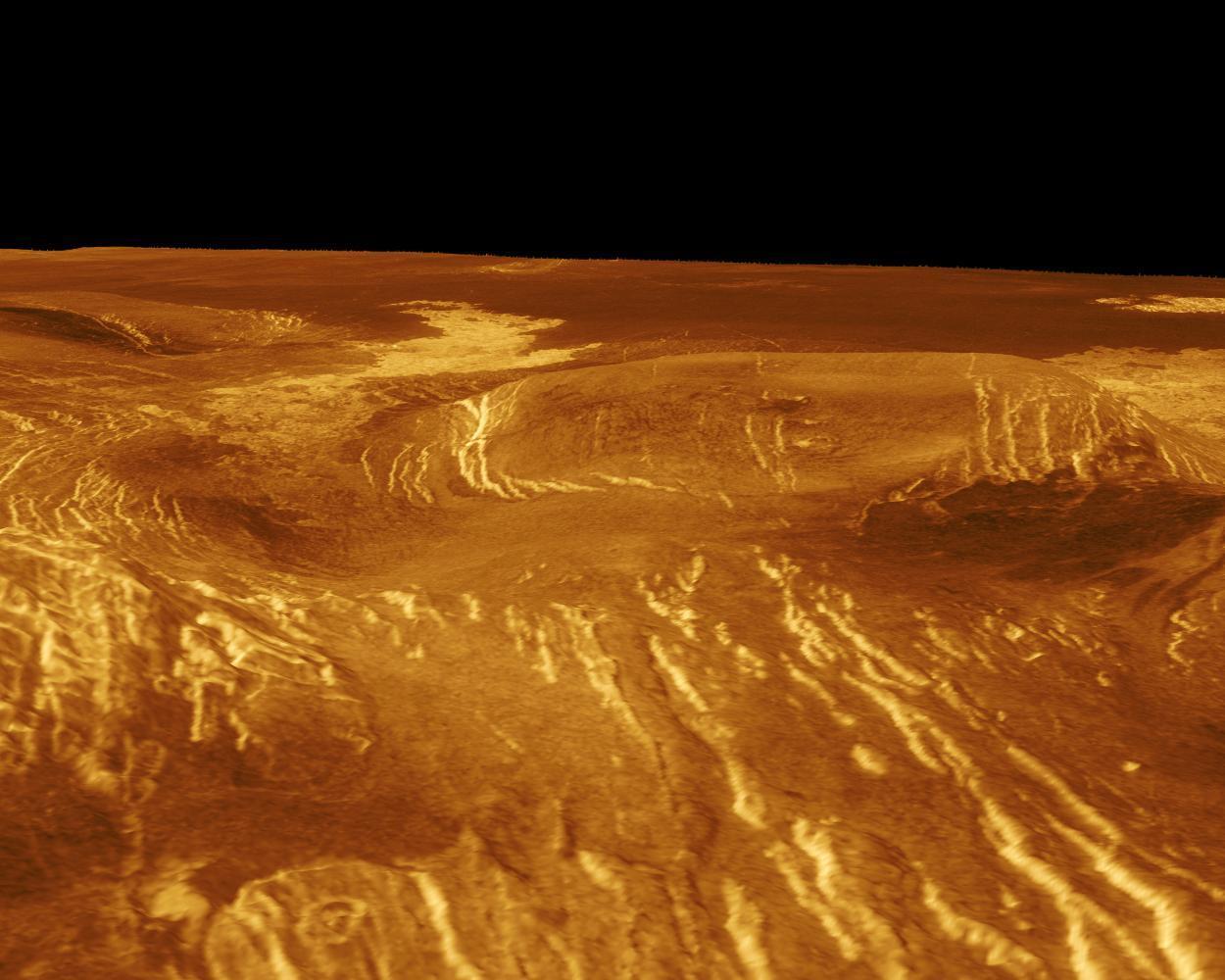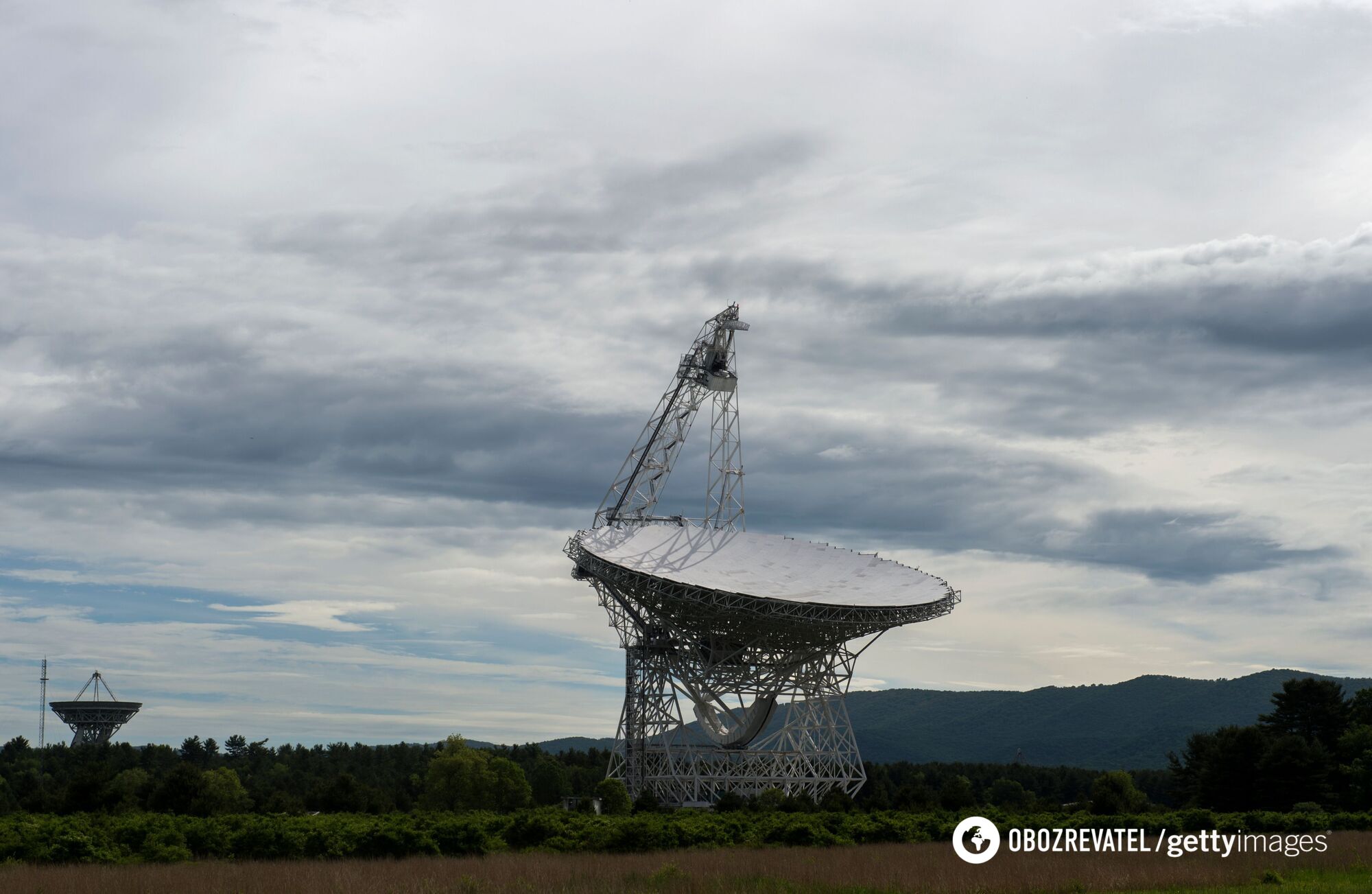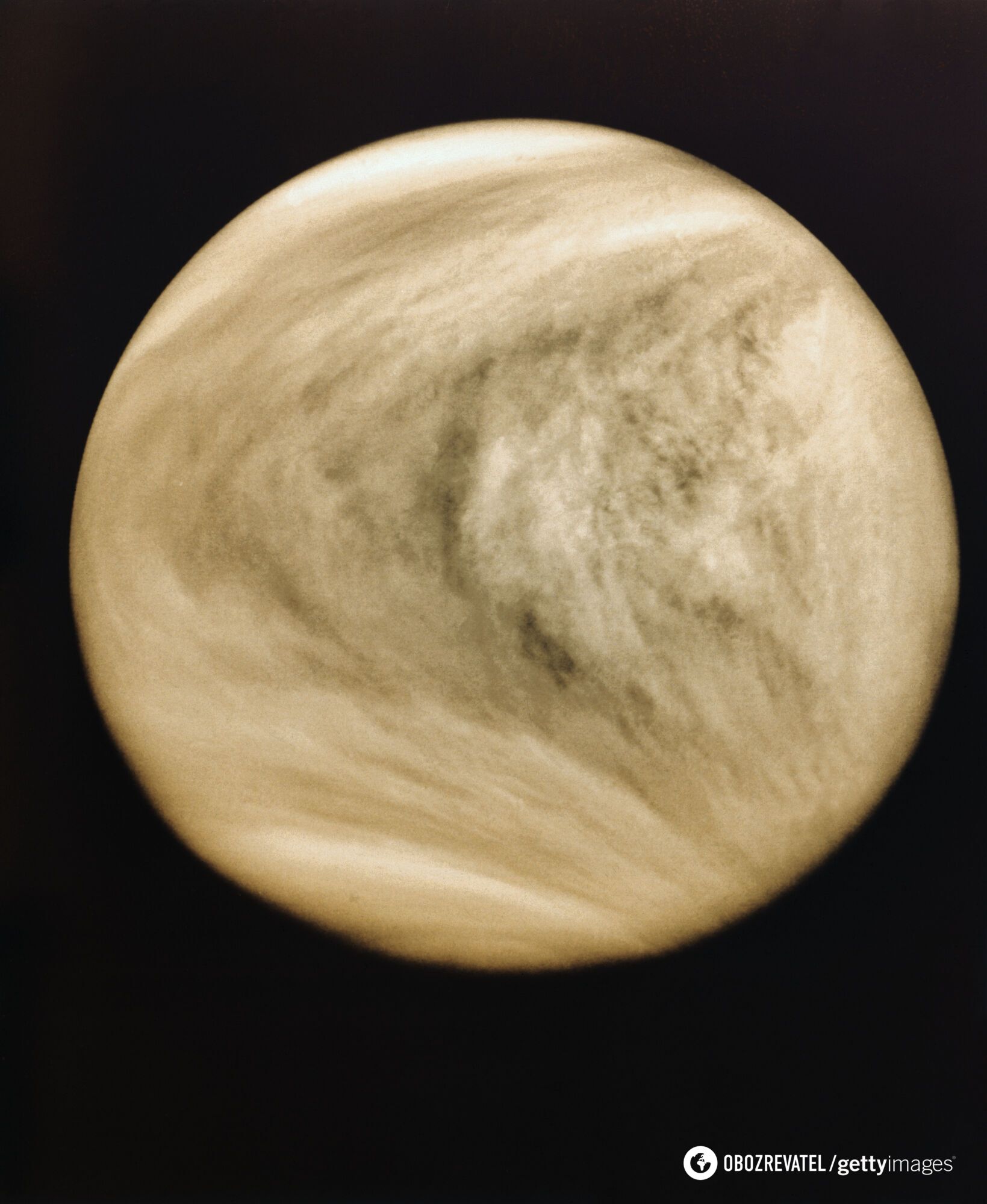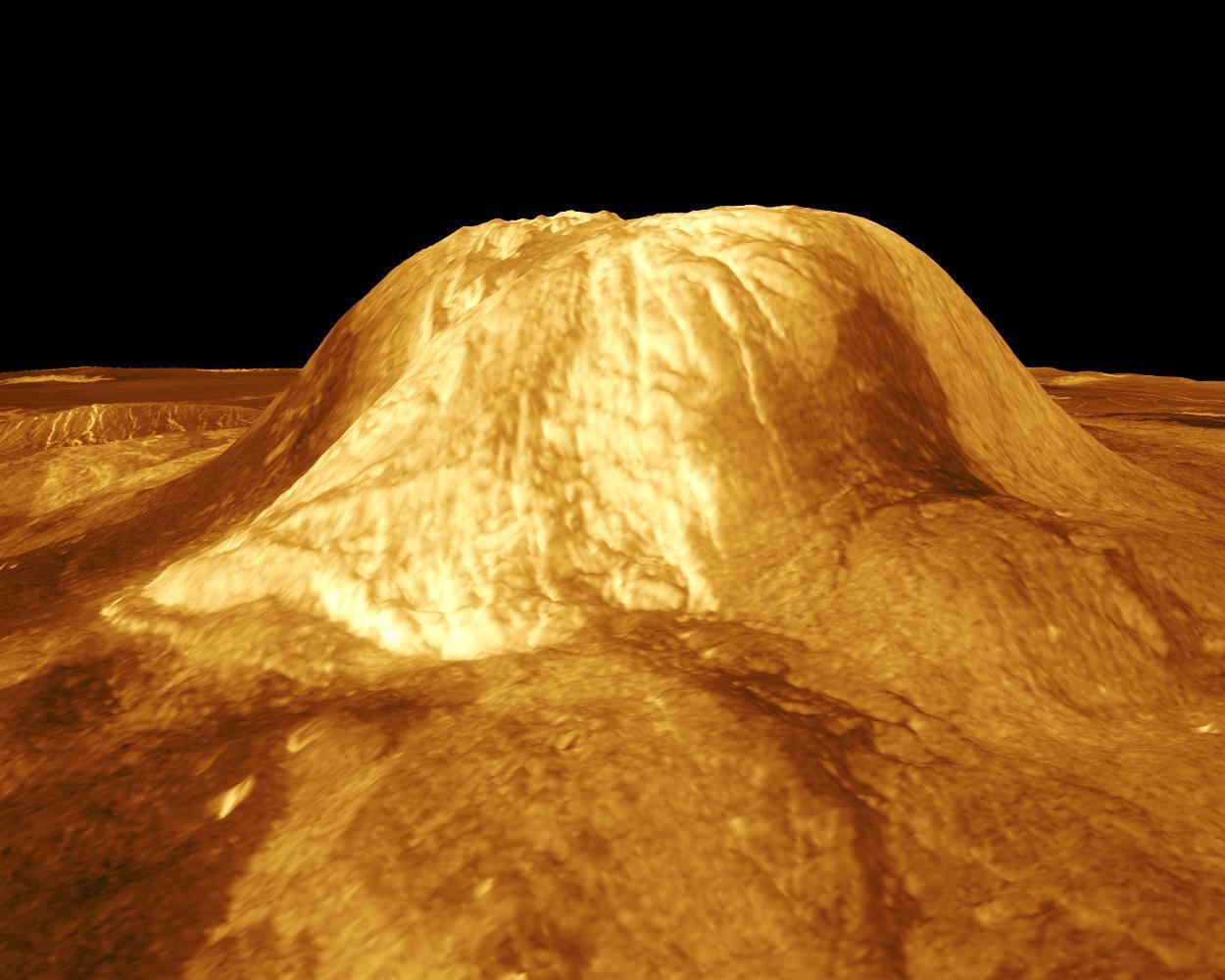News
Is there life on Venus? Scientists have found traces of phosphine and ammonia in the planet's clouds: what does it mean?
Often called Earth's "evil twin," Venus, the second planet from the sun, is considered the worst habitat in our solar system due to its extremely high temperature and high acidity. However, recent studies have shown that the celestial body's clouds contain phosphine and ammonia, which indicate the possible existence of life.
On Earth, both compounds are formed as a result of the decay of organic matter, such as plants and animals, the Daily Mail reports. So far, scientists have not been able to establish the source of these "biomarkers" on Venus.
Astronomers at Cardiff University have discovered traces of ammonia using the Green Bank Telescope. According to Professor Jayne Greaves, the colorless poisonous gas was detected in the upper parts of the planet's clouds, which are too cold for life to exist. However, there is a high probability that the substance is located in deeper, and therefore warmer, areas.
The colorless gas phosphine, which smells like garlic or spoiled fish, was discovered by researchers at Imperial College London led by Dr. Dave Clements. He noted that there is still no definitive evidence that inorganic compounds are indicators of life on Venus.
"Most likely, it's some kind of chemical process that we don't understand and don't know about right now. But phosphine has been proposed as a biomarker for exoplanets (space bodies outside our solar system), and on Earth it is produced only by life, so it is also possible. At this stage, we just don't know. We need more observations, more laboratory and theoretical work to understand what's going on," the researcher explained.
The surface temperature of the Earth's "evil twin" is about 465°C, making it absolutely sterile. Due to the high acidity, phosphine in the clouds of the space object is broken down very quickly. Scientists assume that the disappearance of parts of the inorganic substance is accelerated by aggressive ultraviolet radiation coming from the Sun.
"It must be emphasized that the results are only preliminary, and more work is needed to learn more about the presence of these two potential biomarkers in Venus' clouds. Nevertheless, it is interesting to think that these detections may indicate either possible signs of life or some unknown chemical processes," said Robert Massie, Deputy Chief Executive of the Royal Astronomical Society.
Only verified information is available on the OBOZ.UA Telegram channel and Viber. Do not fall for fakes!































